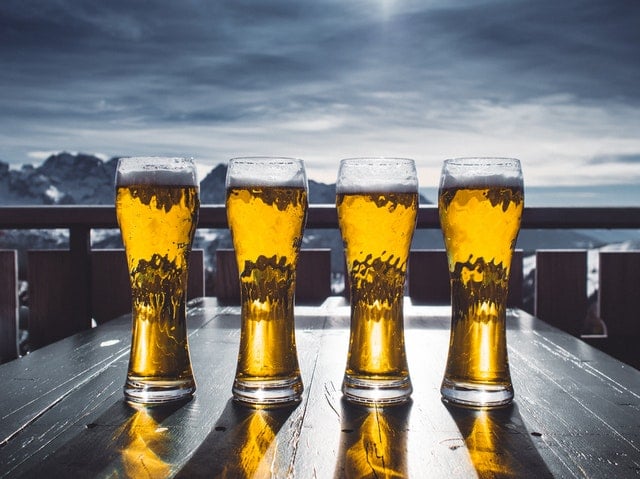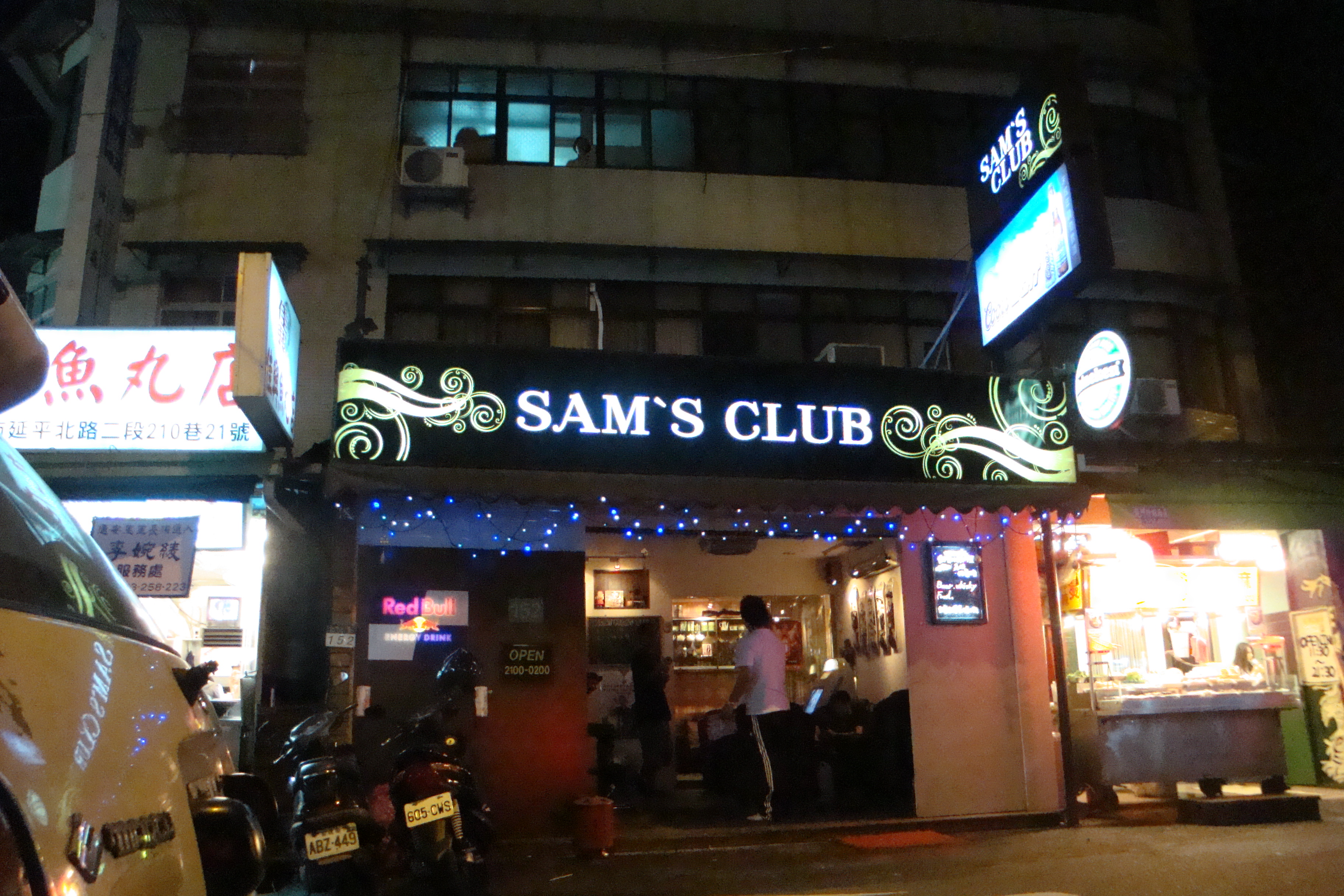Why Does it Seem Like My Mandarin Gets Better After a Few Drinks?
Based on anecdotal evidence from popular media, it’s widely believed that alcohol improves the ability to speak in a foreign language, ostensibly due to the anxiety-reducing effects of booze itself. Based on personal experience, a couple of drinks goes a long way toward loosening my tongue no matter what language I’m speaking.
Photo via Pexels
I’m currently on my fourth language – Mandarin Chinese – and although growing up my family spoke English and German at home, Spanish is the first foreign language I studied in school, which served me well during a litany of restaurant gigs. To be clear, my Spanish skills were garbage. My native Spanish-speaking co-workers constantly made fun of me, which brought levity to an otherwise unfulfilling life as a restaurant drone. Of course though, thanks to them, as the years went by, my Spanish got considerably better. Despite being the butt of jokes and ridicule, I didn’t mind too much because I got a slight fist-bump of respect for at least trying to speak Spanish. There is absolutely something to be said for making an effort.
I spent seven years at my last restaurant gig and a lot of time with the Spanish-speaking crew, many of whom became good friends. There were many nights when the shift was over, the joint was closed, and the staff would congregate at the bar next door for an after-shift drink, which, depending on the mood, could turn into five or six after-shift drinks.
Without fail, near the end of the night, I’d wind up in an argument – usually about sports – with this Peruvian guy, Victor. At some point in the discussion, we’d switch from English to Spanish. There wouldn’t be any announcement. It would just happen. And then Victor would stop and say, “Wow, gringo. Your Spanish is getting pretty good.” That never happened during the shift when I was sober. If anything, I heard the exact opposite all night. “Ay, cabrón! Your Spanish is no bueno, man!”
The same scenario more or less repeated itself during my first two years in Asia and learning Chinese, when I spent 60-70% of my free time in bars and pubs; the kind of joints where people go to drink. Night clubs are for dancing and loud music. Here in Taipei, we call them pubs; back home, they’re called dives; places that might have a pool table or a dart board, but you don’t need to shout above the music to have a conversation, which is really the point of being a social drinker.
Now, it’s important to note that I made the common mistake of not learning a word of Chinese before rolling up in Taiwan. Then, I compounded the mistake – doubled-down on the bet, so to speak – by deciding to learn the language by what I called “necessary immersion”. And local bars were great places to meet people from all walks of life and share experiences.
Unfortunately, a lot of people were eager to practise or utilise their English, so the majority of conversations and transactions only used a smattering of Mandarin when necessary. Meanwhile, at work, everybody only spoke English to me, even if I replied in Mandarin. Therefore, my skill was difficult to gauge; I never knew if my Chinese was getting better or worse, until..
Eventually, I became a regular at a joint called Sam’s Club, and by regular, I mean every night. The proprietor, Sam, was the first to point it out: “Your Chinese is way better when you’re drunk.” At first, it was a shocking statement; I was clueless to my relative fluency. I’d be ten minutes into a conversation and not realize I’d been speaking Chinese the whole time. Once I became aware of it, I started paying attention. My Chinese did seem to get demonstrably better with each drink, and by the time I’d reached 75% alcohol capacity, I’d be on fire.
It was a perplexing condition. Why does it seem like my Mandarin gets better after a few drinks?
A team of researchers in the Netherlands may have published an answer in a recent paper in the Journal of Psychopharmacology.
To test the effect of alcohol on foreign language skills, researchers took 50 native German-speaking psychology undergrads who had recently learned Dutch and gave vodka to one half of the kids, and water to the other. The amount of alcohol given was enough to generate a modest blood alcohol concentration of about 0.04 per cent – or, as I like to call it, the start of a nice buzz. After 15 minutes, the students were instructed to argue a point in Dutch – in this case, for or against animal testing – for two minutes. Two native Dutch speakers, who were blind to the experimental condition, rated the students’ language performance in terms of overall quality, i.e. vocabulary, pronunciation, word selection, and fluency. Then, the students solved some math problems. Finally, participants were asked to rate their own individual Dutch language skills during the discussion.
The study produced some interesting and surprising results. First of all, participants who consumed alcohol had significantly better observer-ratings for their Dutch language, specifically better pronunciation, compared with those in the control group. Thus, the researchers came to the conclusion that “alcohol consumption may have beneficial effects on the pronunciation of a foreign language in people who have recently learned that language.”
Meanwhile, the scientists thought alcohol might increase the students’ self-perceptions of how well they’d spoken in Dutch. Surprisingly, the booze-drinkers didn’t rate their own language performance any higher than the water-drinkers did. And they performed to the statistical average on the arithmetic task. However, they received significantly better scores for their Dutch language skills, both overall and specifically for pronunciation.
As noted in the paper, the amount of alcohol will be important in determining effects, both positive and detrimental. This study looked at the effects of a couple of drinks. As a professional consumer of alcohol, I can tell you: I’m not normal. At least at moderate levels in normal people, the overall belief that booze improves foreign language speaking abilities seems to follow logic: Alcohol lower inhibitions, which eases nervousness or hesitation.
Researchers concluded: “The findings of this study need replication in future studies, testing participants learning languages other than Dutch and varying the amount of alcohol that is consumed to further explore the effects of acute alcohol consumption on foreign language proficiency.”
There’s a case study just waiting to be discovered right here in Taipei. Just saying.




